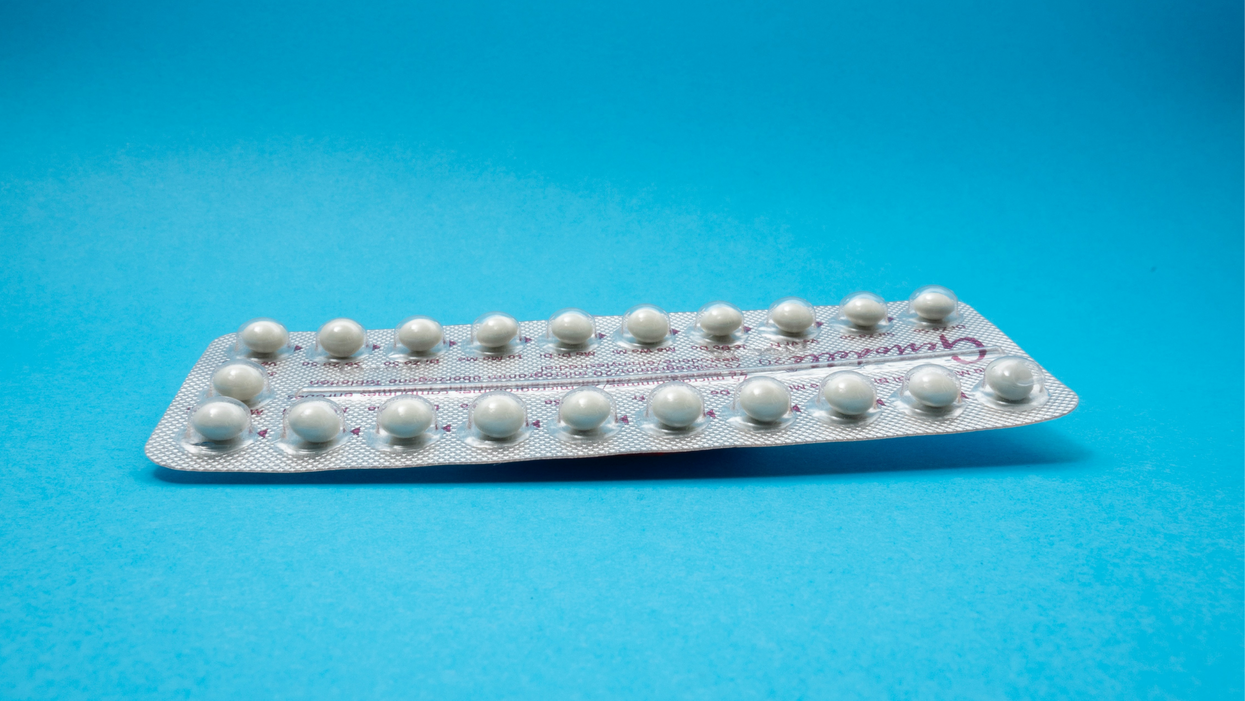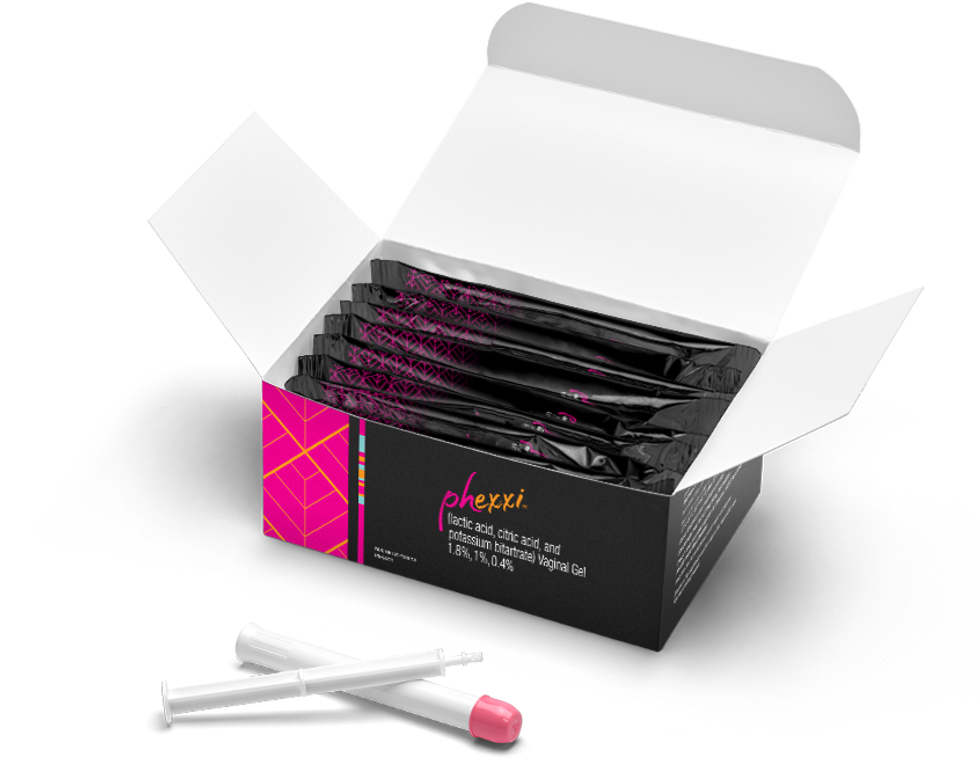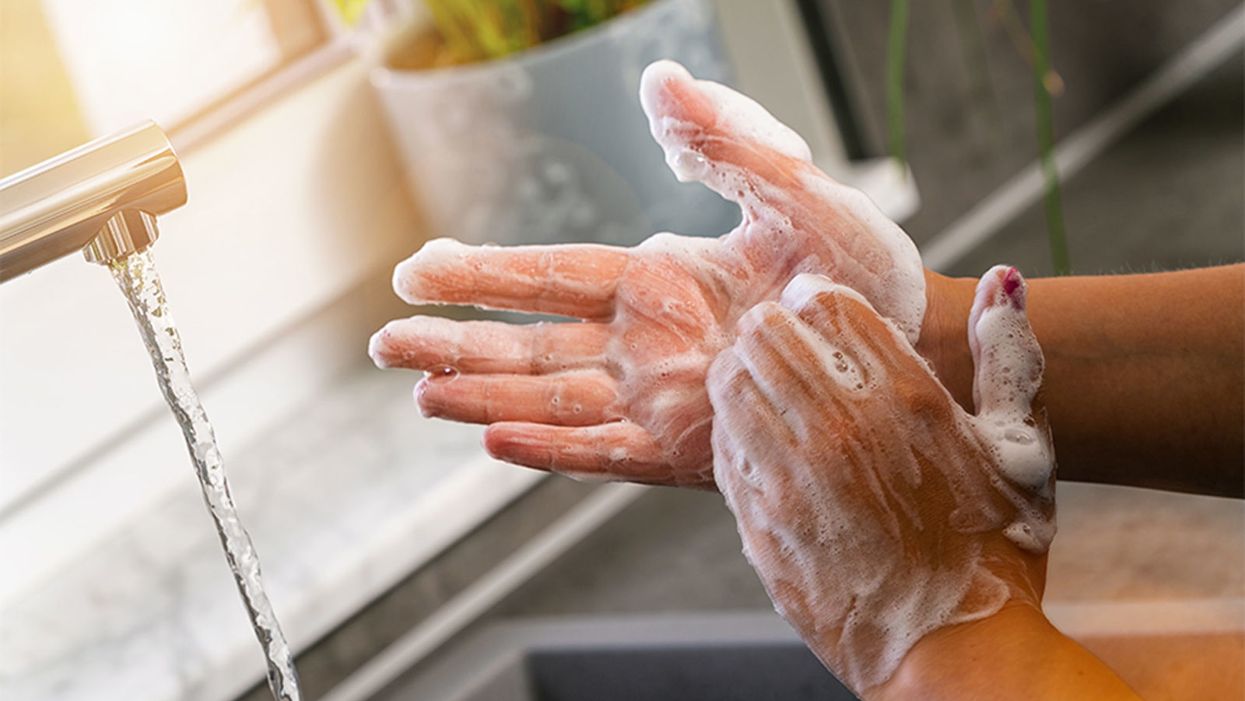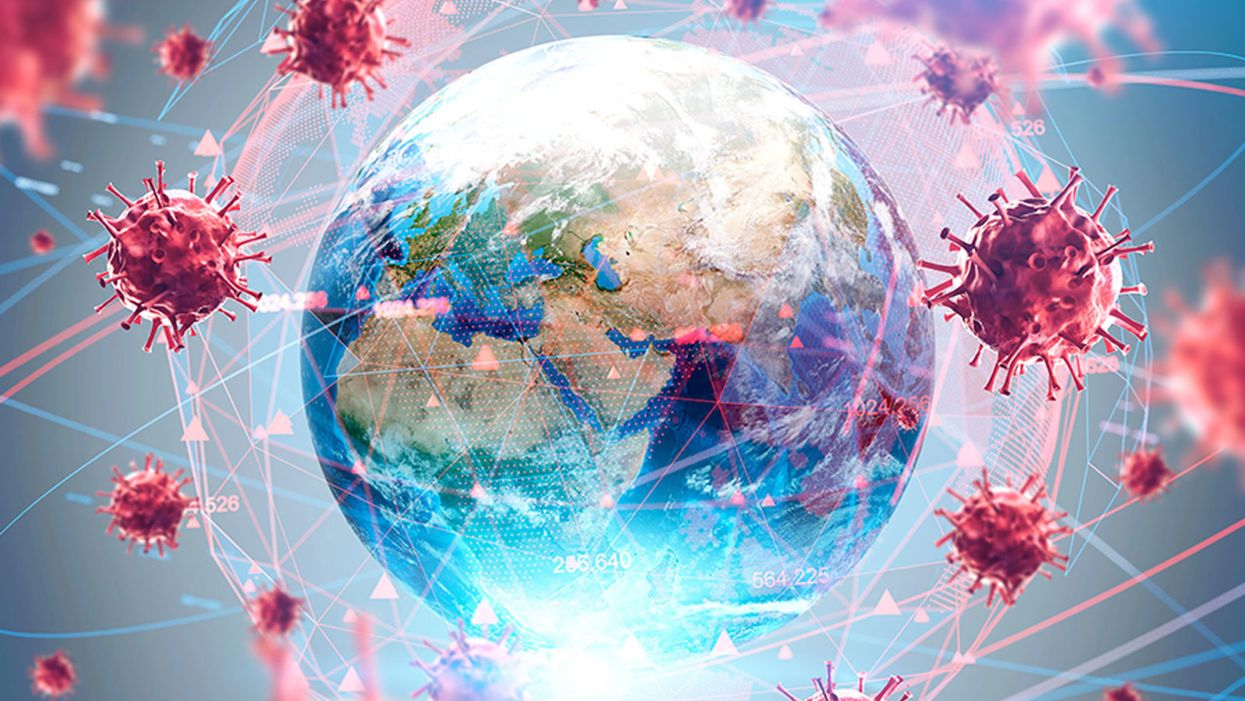New Options Are Emerging in the Search for Better Birth Control

A decade ago, Elizabeth Summers' options for birth control suddenly narrowed. Doctors diagnosed her with Factor V Leiden, a rare genetic disorder, after discovering blood clots in her lungs. The condition increases the risk of clotting, so physicians told Summers to stay away from the pill and other hormone-laden contraceptives. "Modern medicine has generally failed to provide me with an effective and convenient option," she says.
But new birth control options are emerging for women like Summers. These alternatives promise to provide more choices to women who can't ingest hormones or don't want to suffer their unpleasant side effects.
These new products have their own pros and cons. Still, doctors are welcoming new contraceptives following a long drought in innovation. "It's been a long time since we've had something new in the world of contraception," says Heather Irobunda, an obstetrician and gynecologist at NYC Health and Hospitals.
On social media, Irobunda often fields questions about one of these new options, a lubricating gel called Phexxi. San Diego-based Evofem, the company behind Phexxi, has been advertising the product on Hulu and Instagram after the gel was approved by the Food and Drug Administration in May 2020. The company's trendy ads target women who feel like condoms diminish the mood, but who also don't want to mess with an IUD or hormones.
Here's how it works: Phexxi is inserted via a tampon-like device up to an hour before sex. The gel regulates vaginal pH — essentially, the acidity levels — in a range that's inhospitable to sperm. It sounds a lot like spermicide, which is also placed in the vagina prior to sex to prevent pregnancy. But spermicide can damage the vagina's cell walls, which can increase the risk of contracting sexually transmitted diseases.
"Not only is innovation needed, but women want a non-hormonal option."
Phexxi isn't without side effects either. The most common one is vaginal burning, according to a late-stage trial. It's also possible to develop a urinary tract infection while using the product. That same study found that during typical use, Phexxi is about 86 percent effective at preventing pregnancy. The efficacy rate is comparable to condoms but lower than birth control pills (91 percent) and significantly lower than an IUD (99 percent).
Phexxi – which comes in a pack of 12 – represents a tiny but growing part of the birth control market. Pharmacies dispensed more than 14,800 packs from April through June this year, a 65 percent increase over the previous quarter, according to data from Evofem.
"We've been able to demonstrate that not only is innovation needed, but women want a non-hormonal option," says Saundra Pelletier, Evofem's CEO.
Beyond contraception, the company is carrying out late-stage tests to gauge Phexxi's effectiveness at preventing the sexually transmitted infections chlamydia and gonorrhea.

Phexxi is inserted via a tampon-like device up to an hour before sex.
Phexxi
A New Pill
The first birth control pill arrived in 1960, combining the hormones estrogen and progestin to stop sperm from joining with an egg, giving women control over their fertility. Subsequent formulations sought to ease side effects, by way of lower amounts of estrogen. But some women still experience headaches and nausea – or more serious complications like blood clots. On social media, women recently noted that birth control pills are much more likely to cause blood clots than Johnson & Johnson's COVID-19 vaccine that was briefly paused to evaluate the risk of clots in women under age 50. What will it take, they wondered, for safer birth control?
Mithra Pharmaceuticals of Belgium sought to create a gentler pill. In April, the FDA approved Mithra's Nextstellis, which includes a naturally occurring estrogen, the first new estrogen in the U.S. in 50 years. Nextstellis selectively acts on tissues lining the uterus, while other birth control pills have a broader target.
A Phase 3 trial showed a 98 percent efficacy rate. Andrew London, an obstetrician and gynecologist, who practices at several Maryland hospitals, says the results are in line with some other birth control pills. But, he added, early studies indicate that Nextstellis has a lower risk of blood clotting, along with other potential benefits, which additional clinical testing must confirm.
"It's not going to be worse than any other pill. We're hoping it's going to be significantly better," says London.
The estrogen in Nexstellis, called estetrol, was skipped over by the pharmaceutical industry after its discovery in the 1960s. Estetrol circulates between the mother and fetus during pregnancy. Decades later, researchers took a new look, after figuring out how to synthesize estetrol in a lab, as well as produce estetrol from plants.
"That allowed us to really start to investigate the properties and do all this stuff you have to do for any new drug," says Michele Gordon, vice president of marketing in women's health at Mayne Pharma, which licensed Nextstellis.
Bonnie Douglas, who followed the development of Nextstellis as part of a search for better birth control, recently switched to the product. "So far, it's much more tolerable," says Douglas. Previously, the Midwesterner was so desperate to find a contraceptive with fewer side effects that she turned to an online pharmacy to obtain a different birth control pill that had been approved in Canada but not in the U.S.
Contraceptive Access
Even if a contraceptive lands FDA approval, access poses a barrier. Getting insurers to cover new contraceptives can be difficult. For the uninsured, state and federal programs can help, and companies should keep prices in a reasonable range, while offering assistance programs. So says Kelly Blanchard, president of the nonprofit Ibis Reproductive Health. "For innovation to have impact, you want to reach as many folks as possible," she says.
In addition, companies developing new contraceptives have struggled to attract venture capital. That's changing, though.
In 2015, Sabrina Johnson founded DARÉ Bioscience around the idea of women's health. She estimated the company would be fully funded in six months, based on her track record in biotech and the demand for novel products.
But it's been difficult to get male investors interested in backing new contraceptives. It took Johnson two and a half years to raise the needed funds, via a reverse merger that took the company public. "There was so much education that was necessary," Johnson says, adding: "The landscape has changed considerably."
Johnson says she would like to think DARÉ had something to do with the shift, along with companies like Organon, a spinout of pharma company Merck that's focused on reproductive health. In surveying the fertility landscape, DARÉ saw limited non-hormonal options. On-demand options – like condoms – can detract from the moment. Copper IUDs must be inserted by a doctor and removed if a woman wants to return to fertility, and this method can have onerous side effects.
So, DARÉ created Ovaprene, a hormone-free device that's designed to be inserted into the vagina monthly by the user. The mesh product acts as a barrier, while releasing a chemical that immobilizes sperm. In an early study, the company reported that Ovaprene prevented almost all sperm from entering the cervical canal. The results, DARÉ believes, indicate high efficacy.
A late-stage study, slated to kick off next year, will be the true judge. Should Ovaprene eventually win regulatory approval, drug giant Bayer will handle commercializing the device.
Other new forms of birth control in development are further out, and that's assuming they perform well in clinical trials. Among them: a once-a-month birth control pill, along with a male version of the birth control pill. The latter is often brought up among women who say it's high time that men take a more proactive role in birth control.
For Summers, her search for a safe and convenient birth control continues. She tried Phexxi, which caused irritation. Still, she's excited that a non-hormonal option now exists. "I'm sure it will work for others," she says.
Frequent, thorough handwashing is essential to protecting yourself from infection.
What's the case-fatality rate?
Currently, the official rate is 3.4%. But this is likely way too high. China was hit particularly hard, and their healthcare system was overwhelmed. The best data we have is from South Korea. The Koreans tested 210,000 people and detected the virus in 7,478 patients. So far, the death toll is 53, which is a case-fatality rate of 0.7%. This is seven times worse than the seasonal flu (which has a case-fatality rate of 0.1%).
What's the best way to clean your hands? Soap and water? Hand sanitizer?
Soap and water is always best. Be sure to wash your hands thoroughly. (The CDC recommends 20 seconds.) If soap and water are not available, the CDC says to use hand sanitizer that is at least 60% alcohol. The problem with hand sanitizer, however, is that people neither use enough nor spread it over their hands properly. Also, the sanitizer should be covering your hands for 10-15 seconds, not evaporating before that.
How often should I wash my hands?
You should wash your hands after being in a public place, before you eat, and before you touch your face. It's a good idea to wash your hands after handling money and your cell phone, too.
How long can coronavirus live on surfaces?
It depends on the surface. According to the New York Times, "[C]old and flu viruses survive longer on inanimate surfaces that are nonporous, like metal, plastic and wood, and less on porous surfaces, like clothing, paper and tissue." According to the Journal of Hospital Infection, human coronaviruses "can persist on inanimate surfaces like metal, glass or plastic for up to 9 days, but can be efficiently inactivated by surface disinfection procedures with 62–71% ethanol, 0.5% hydrogen peroxide or 0.1% sodium hypochlorite within 1 minute." (Note: Sodium hypochlorite is bleach.)
Can Lysol wipes kill it?
Maybe not. It depends on the active ingredient. Many Lysol products use benzalkonium chloride, which the aforementioned Journal of Hospital Infection paper said was "less effective." The EPA has released a list of disinfectants recommended for use against coronavirus.
Should you wear a mask in public?
The CDC does not recommend that healthy people wear a mask in public. The benefit is likely small. However, if you are sick, then you should wear a mask to help catch respiratory droplets as you exhale.
Will pets give it to you?
That can't be ruled out. There is a documented case of human-to-canine transmission. However, an article in LiveScience explains that canine-to-human is unlikely.
Are there any "normal" things we are doing that make things worse?
Yes! Not washing your hands!!
What does it mean that previously cleared people are getting sick again? Is it the virus within or have they caught it via contamination?
It's not entirely clear. It could be that the virus was never cleared to begin with. Or it could be that the person was simply infected again. That could happen if the antibodies generated don't last long.
Will the virus go away with the weather/summer?
Quite likely, yes. Cold and flu viruses don't do well outside in summer weather. (For influenza, the warm weather causes the viral envelope to become a liquid, and it can no longer protect the virus.) That's why cold and flu season is always during the late fall and winter. However, some experts think that it is a "false hope" that the coronavirus will disappear during the summer. We'll have to wait and see.
And will it come back in the fall/winter?
That's a likely outcome. Again, we'll have to wait and see. Some epidemiologists think that COVID-19 will become seasonal like influenza.
Does dry or humid air make a difference?
Flu viruses prefer cold, dry weather. That could be true of coronaviruses, too.
What is the incubation period?
According to the World Health Organization, it's about 5 days. But it could be anywhere from 1 to 14 days.
Should you worry about sitting next to asymptomatic people on a plane or train?
It's not possible to tell if an asymptomatic person is infected or not. That's what makes asymptomatic people tricky. Just be cautious. If you're worried, treat everyone like they might be infected. Don't let them get too close or cough in your face. Be sure to wash your hands.
Should you cancel air travel planned in the next 1-2 months in the U.S.?
There are no hard and fast rules. Use common sense. Avoid hotspots of infection. If you have a trip planned to Wuhan, you might want to wait on that one. If you have a trip planned to Seattle and you're over the age of 60 and/or have an underlying health condition, you may want to hold off on that, too. If you do fly on a plane, former FDA commissioner Dr. Scott Gottlieb recommends cleaning the back of your seat and other close contact areas with antiseptic wipes. He also refuses to take anything handed out by flight attendants, since he says the biggest route of transmission comes from touching contaminated surfaces (and then touching your face).
There have been reports of an escalation of hate crimes towards Asian Americans. Can the microbiologist help illuminate that this disease has impacted all racial groups?
People might be racist, but COVID-19 is not. It can infect anyone. Older people (i.e., 60 years and older) and those with underlying health conditions are most at risk. Interestingly, young people (aged 9 and under) are minimally impacted.
To what extent/if any should toddlers -- who put everything in mouth -- avoid group classes like Gymboree?
If they get infected, toddlers will probably experience only a mild illness. The problem is if the toddler then infects somebody at higher risk, like grandpa or grandma.
Should I avoid events like concerts or theater performances if I live in a place where there is known coronavirus?
It's not an unreasonable thing to do.
Any special advice or concerns for pregnant women?
There isn't good data on this. Previous evidence, reported by the CDC, suggests that pregnant women may be more susceptible to respiratory viruses.
Advice for residents of long-term care facilities/nursing homes?
Remind the nurse or aide to constantly wash their hands.
Can we eat at Chinese restaurants? Does eating onions kill viruses? Can I take an Uber and be safe from infection?
Yes. No. Does the Uber driver or previous passengers have coronavirus? It's not possible to tell. So, treat an Uber like a public space and behave accordingly.
What public spaces should we avoid?
That's hard to say. Some people avoid large gatherings, others avoid leaving the house. Ultimately, it's going to depend on who you are and what sort of risk you're willing to take. (For example, are you young and healthy or old and sick?) I would be willing to do things that I would advise older people avoid, like going to a sporting event.
What are the differences between the L strain and the S strain?
That's not entirely clear, and it's not even clear that they are separate strains. There are some genetic differences between them. However, just because RNA viruses mutate doesn't necessarily mean that the virus will mutate to something more dangerous or unrecognizable by our immune system. The measles virus mutates, but it more or less remains the same, which is why a single vaccine could eradicate it – if enough people actually were willing to get a measles shot.
Should I wear disposable gloves while traveling?
No. If you touch something that's contaminated, the virus will be on your glove instead of your hand. If you then touch your face, you still might get sick.
The Best Coronavirus Experts to Follow on Twitter
Following these experts on social media will help you stay well-informed about the coronavirus. Global virus and disease spread, coronavirus.
As the coronavirus tears across the globe, the world's anxiety is at a fever-pitch, and we're all craving information to stay on top of the crisis.
But turning to the Internet for credible updates isn't as simple as it sounds, since we have an invisible foe spreading as quickly as the virus itself: misinformation. From wild conspiracy theories to baseless rumors, an infodemic is in full swing.
For the latest official information, you should follow the CDC, WHO, and FDA, in addition to your local public health department. But it's also helpful to pay attention to the scientists, doctors, public health experts and journalists who are sharing their perspectives in real time as new developments unfold. Here's a handy guide to get you started:
VIROLOGY
Dr. Trevor Bedford/@trvrb: Scientist at the Fred Hutchinson Cancer Research Center studying viruses, evolution and immunity.
Dr. Benhur Lee/@VirusWhisperer: Professor of microbiology at the Icahn School of Medicine at Mount Sinai
Dr. Angela Rasmussen/@angie_rasmussen: Virologist and associate research scientist at Columbia University
Dr. Florian Krammer/@florian_krammer: Professor of Microbiology at the Icahn School of Medicine at Mount Sinai
EPIDEMIOLOGY:
Dr. Alice Sim/@alicesim: Infectious disease epidemiologist and consultant at the World Health Organization
Dr. Tara C. Smith/@aetiology: Infectious disease specialist and professor at Kent State University
Dr. Caitlin Rivers/@cmyeaton: Epidemiologist and assistant professor at the Johns Hopkins Bloomberg School of Public Health
Dr. Michael Mina/@michaelmina_lab: Physician and Assistant Professor of Epidemiology & Immunology at the Harvard TH Chan School of Public Health
INFECTIOUS DISEASE:
Dr. Nahid Bhadelia/@BhadeliaMD: Infectious diseases physician and the medical director of Special Pathogens Unit at Boston University School of Medicine
Dr. Paul Sax/@PaulSaxMD: Clinical Director of the Division of Infectious Diseases at Brigham and Women's Hospital
Dr. Priya Sampathkumar/@PsampathkumarMD: Infectious Disease Specialist at the Mayo Clinic
Dr. Krutika Kuppalli/@KrutikaKuppalli: Medical doctor and Infectious Disease Specialist based in Palo Alto, CA
PANDEMIC PREP:
Dr. Syra Madad/@syramadad: Senior Director, System-wide Special Pathogens Program at New York City Health + Hospitals
Dr Sylvie Briand/@SCBriand: Director of Pandemic and Epidemic Diseases Department at the World Health Organization
Jeremy Konyndyk/@JeremyKonyndyk: Senior Policy Fellow at the Center for Global Development
Amesh Adalja/@AmeshAA: Senior Scholar at the Johns Hopkins University Center for Health Security
PUBLIC HEALTH:
Scott Becker/@scottjbecker: CEO of the Association of Public Health Laboratories
Dr. Scott Gottlieb/@ScottGottliebMD: Physician, former commissioner of the Food and Drug Administration
APHA Public Health Nursing/@APHAPHN: Public Health Nursing Section of the American Public Health Association
Dr. Tom Inglesby/@T_Inglesby: Director of the Johns Hopkins SPH Center for Health Security
Dr. Nancy Messonnier/@DrNancyM_CDC: Director of the Center for the National Center for Immunization and Respiratory Diseases (NCIRD)
Dr. Arthur Caplan/@ArthurCaplan: Professor of Bioethics at New York University Langone Medical Center
SCIENCE JOURNALISTS:
Laura Helmuth/@laurahelmuth: Incoming Editor in Chief of Scientific American
Helen Branswell/@HelenBranswell: Infectious disease and public health reporter at STAT
Sharon Begley/@sxbegle: Senior writer at STAT
Carolyn Johnson/@carolynyjohnson: Science reporter at the Washington Post
Amy Maxmen/@amymaxmen: Science writer and senior reporter at Nature
Laurie Garrett/@Laurie_Garrett: Pulitzer-prize winning science journalist, author of The Coming Plague, former senior fellow for global health at the Council on Foreign Relations
Soumya Karlamangla/@skarlamangla: Health writer at the Los Angeles Times
André Picard/@picardonhealth: Health Columnist, The Globe and Mail
Caroline Chen/@CarolineYLChen: Healthcare reporter at ProPublica
Andrew Jacobs/@AndrewJacobsNYT: Science reporter at the New York Times
Meg Tirrell/@megtirrell: Biotech and pharma reporter for CNBC
Kira Peikoff was the editor-in-chief of Leaps.org from 2017 to 2021. As a journalist, her work has appeared in The New York Times, Newsweek, Nautilus, Popular Mechanics, The New York Academy of Sciences, and other outlets. She is also the author of four suspense novels that explore controversial issues arising from scientific innovation: Living Proof, No Time to Die, Die Again Tomorrow, and Mother Knows Best. Peikoff holds a B.A. in Journalism from New York University and an M.S. in Bioethics from Columbia University. She lives in New Jersey with her husband and two young sons. Follow her on Twitter @KiraPeikoff.

